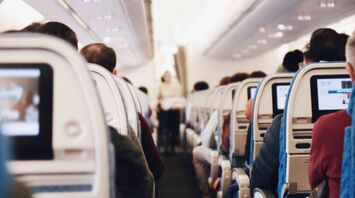Airlines Expand Their Fleets: How It Will Affect Travelers

In recent weeks, several major airlines have announced significant additions to their fleets. These expansions, set to take place across various international routes, aim to enhance the travel experience for passengers worldwide.
Japan Airlines (JAL) has signed an agreement with The Boeing Company to purchase 10 additional Boeing 787-9 aircraft, with an option for 10 more. These aircraft will be introduced starting in 2028, helping JAL expand its international routes, particularly in North America, Asia, and India. The new, more fuel-efficient aircraft will reduce CO2 emissions and enhance the quality of passenger services.
Drukair, the national carrier of Bhutan, has signed a Memorandum of Understanding with Airbus for the purchase of 3 A320neo and 2 A321XLR aircraft. These aircraft are scheduled for delivery in 2030 and will operate out of Paro International Airport and Gelephu Mindfulness City, expanding routes to Europe, Southeast Asia, and Australia. The new aircraft will reduce noise and emissions while improving passenger comfort.
Vietjet signed a contract with Airbus at the Farnborough Airshow to purchase 20 new A330neo aircraft valued at $7.4 billion. These aircraft will replace the current fleet of A330-300s and help Vietjet expand its intercontinental routes. The modern and fuel-efficient aircraft will support the airline's sustainable development strategy, aiming for net-zero emissions by 2050.
These fleet upgrades promise to make flights more comfortable, safer, and eco-friendly for passengers worldwide. New aircraft models like the Boeing 787-9 and Airbus A320neo are equipped with more advanced climate control systems, ensuring comfortable temperatures and improved air quality in the cabin. Spacious overhead bins and enhanced seating will also add convenience during long flights, while innovative entertainment systems will provide passengers with enjoyable in-flight experiences.
Safety will also reach new heights with advanced navigation and avionics systems that improve aircraft control and stability. More reliable and economical engines reduce the risk of failures and technical issues, making flights safer for passengers. Additionally, modern aircraft are equipped with noise reduction systems, reducing stress levels during takeoffs and landings.
From an environmental perspective, new aircraft significantly reduce CO2 emissions thanks to more efficient engines and improved aerodynamics. This not only decreases the airlines' carbon footprint but also supports global efforts to combat climate change. The use of next-generation aviation fuels also aligns with the goal of reducing greenhouse gas emissions, making travel more sustainable for future generations.



















